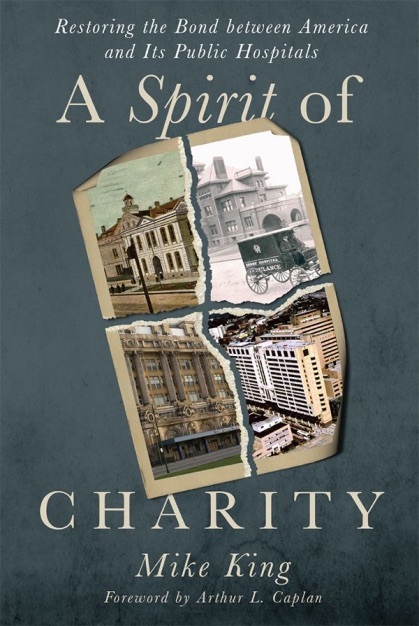Abraham Nussbaum
Physician, Teacher, Writer
The Reading Cure
People sometimes confuse psychics and psychiatrists. Shrinks can’t read minds; we read books. A few years ago, I left social media and resumed reading. Reading builds resiliency and the ability to form therapeutic alliances. Here are some books about doctoring that I have been reading lately:
-

Mike King, A Spirit of Charity
Working in a public hospital leaves you with questions about how and why the safety-net was stitched together. Why are mental illness and renal disease funded differently? Why are grandparents and grandchildren in such different buckets? Did someone actually intend this bureaucratic morass??? No single book answers those questions in a more straightforward manner than…
-
Barbara Ehrenreich, Natural Causes
It’s a winter read, for sure, brimming with bark-stripping broadsides. Ehrenreich was the polemicist medicine deserved because she disliked cant and commerce, favouring science and socialism instead. She surely strips away some truths in the process, but it’s a bracing way to get past the built-up lies of today’s healthcare industry. I only wish she…
-
Anton Chekov, The Steppe and Other Stories
Minor works from the major doctor-writer. … And yet, gems like– “His reading suggested someone swimming in the sea surrounded by the wreckage of his ship, and trying to save his life by eagerly grasping first one spar and then another.” — capture the survival strategy of a doctor like me.
-
Chekov, The Russian Master And Other Stories
Chekov is the Ur-text for physician writers. “Only the rich peasants feared death. The richer they grew, the less they believed in God and and salvation, and if they gave candles and had special masses said, it was only for fear of their earthly end and to be on the safe side. Poorer peasants were…
-
Emma Goldberg, Life On The Line
On the third anniversary of the pandemic-which-shall-not-be-named, I finally read @emmabgo on six NYC med students who graduated early. It has all the vibes–PPE shortages, Face-Timed goodbyes, post-shift Silkwood showers– of the hero era of the pandemic. Grateful she got it all down on paper.
-
JA Baker, The Peregrine
We see patients. We attend to the sick. Doctors like me do neither half as well as this Baker. It’s a book about following peregrines for seven months, but a witness to deep attention. “The hardest thing of all to see is what is really there.” I wish I could see this well as a…
-
Anton Chekhov, Ward Number Six and Other Stories
A: Chekhov. Q: Which one physician-writer should I read again? “The patients are many and time is short, so transactions are confined to brief questions and the issue of some nostrum such as ammoniated liniment or castor oil.”
-
Sabrina & Corina, Kali Fajardo-Anstine
Northside! Fajardo-Anstine writes “our story of our everything” for a place and people rarely encountered in fiction. It gives me such hope to read today’s Denver narrated in this remarkable collection. In many stories, I would close my eyes and revisit the places her characters were navigating. Now, when I return to those places, I…
-
Nobody’s Normal, Roy Richard Grinker
As @roygrinker reminds, psychoanalytic and biological accounts of mental illness can both increase stigma. Both serve particular cultural interests, while dis-serving others. Grinker selects capitalism, war, and the body as his chief interests, then writes about them in an incredibly readable way. (For my money, no one has written a more readable account of dimensions…
-
Questioning the Premedical Paradigm, Donald Barr
Just for med ed nerds…. On a personal level, Barr helped me understand why I struggled in the first two years of med school: plentiful data showed that humanities majors struggled in the preclinical years only to do well in the clinical years. On a societal level, this book frustrated me: despite data showing that…
-
The Soul of Care: The Moral Education of a Husband and a Doctor, Arthur Kleinman
Kleinman became more fully human. Not by decades of doctoring, but by caring for his ailing wife. Why do even our most esteemed physicians report that they do not become true caregivers in our daily work? “Caregiving teaches one humility; you learn that no matter how able and successful you may be in some realms–…
-
On Social Justice, Basil the Great
Weary from social justice debates? Basil offers a more radical account. It’s not two-tiered, it’s all in for the eschaton. To The Rich! I Will Tear Down My Barns! In Time of Famine and Drought! Against Those Who Lend At Interest! And for all the poor.